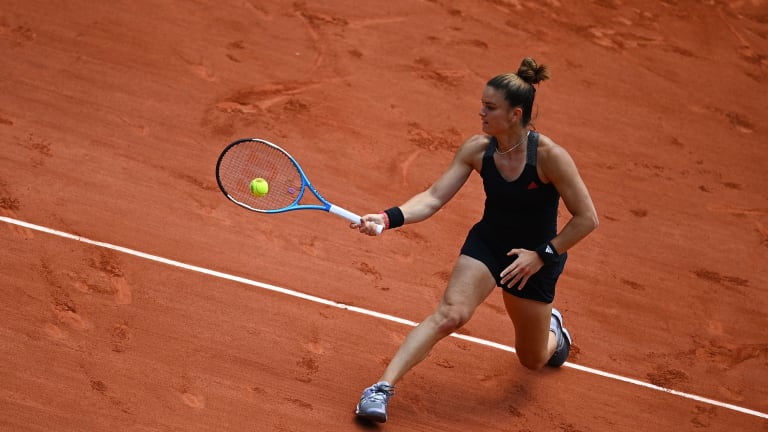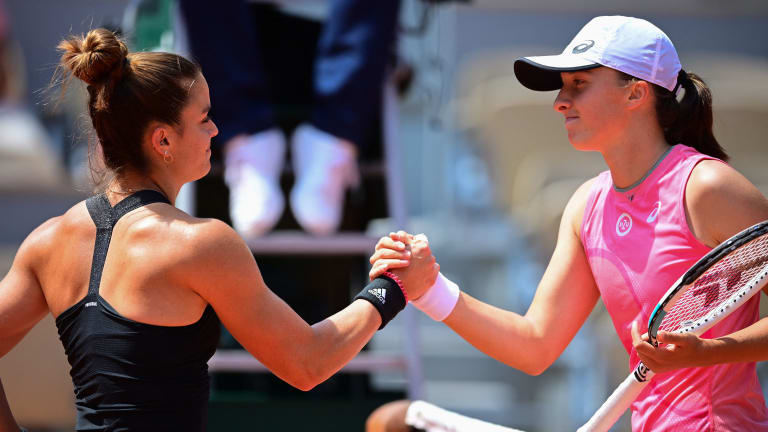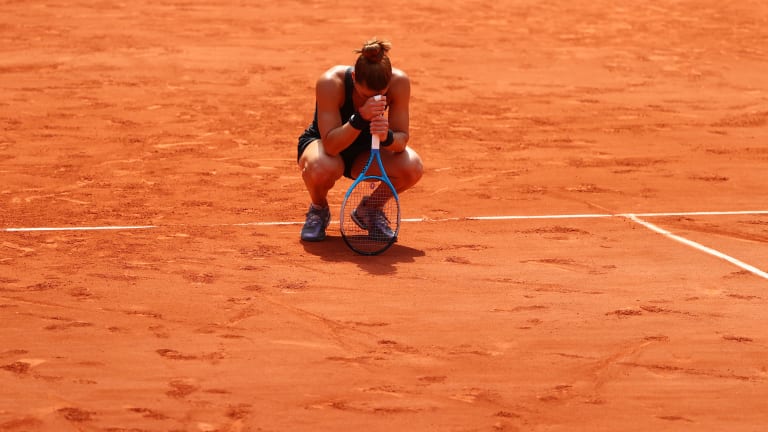Roland Garros
Maria Sakkari masters "3-F" tennis to shock Iga Swiatek, complete line-up of maiden major semifinalists
By Jun 09, 2021Roland Garros
Rafael Nadal withdraws from French Open with hip injury; 2024 likely to be last year on tour
By May 18, 2023Roland Garros
French Open organizers give wild cards to veterans Paire and Mladenovic
By May 15, 2023Roland Garros
Novak Djokovic: 19 stats for his 19th Grand Slam title
By Jun 14, 2021Roland Garros
Five Things To Know About Barbora Krejcikova’s Win At Roland Garros
By Jun 14, 2021Roland Garros
Ranking Reaction: Tsitsipas hits new high of No. 4, Krejcikova surges into Top 20
By Jun 14, 2021Roland Garros
How do Novak Djokovic, Rafael Nadal and Roger Federer stack up, post-Paris?
By Jun 14, 2021Roland Garros
The Rally: Is Novak Djokovic's Roland Garros triumph the most remarkable of his 19 Slam-title runs?
By Jun 13, 2021Roland Garros
Dani's Take: Krejcikova's triumph, Djokovic's usurpation, and taking stock of the final 72 hours in Paris
By Jun 12, 2021Roland Garros
The Rally: At a French Open where new faces confronted big moments, Barbora Krejcikova completes a breakout singles run
By Jun 12, 2021Maria Sakkari masters "3-F" tennis to shock Iga Swiatek, complete line-up of maiden major semifinalists
The Greek star unveiled an aggressive game plan to outlast the defending champion and continue her fairytale run at Roland Garros.
Published Jun 09, 2021
Advertising
Advertising

Playing her first Grand Slam quarterfinal, Sakkari dethroned the defending champ in straight sets (Getty Images).
© AFP via Getty Images
Advertising

Sakkari snapped Swiatek's 10-match winning streak that started with a title run in Rome last month (Getty Images).
© AFP via Getty Images
Advertising

The Greek star will next face Barbora Krejcikova for a once-in-a-lifetime opportunity to reach a maiden major final (Getty Images).
© Getty Images